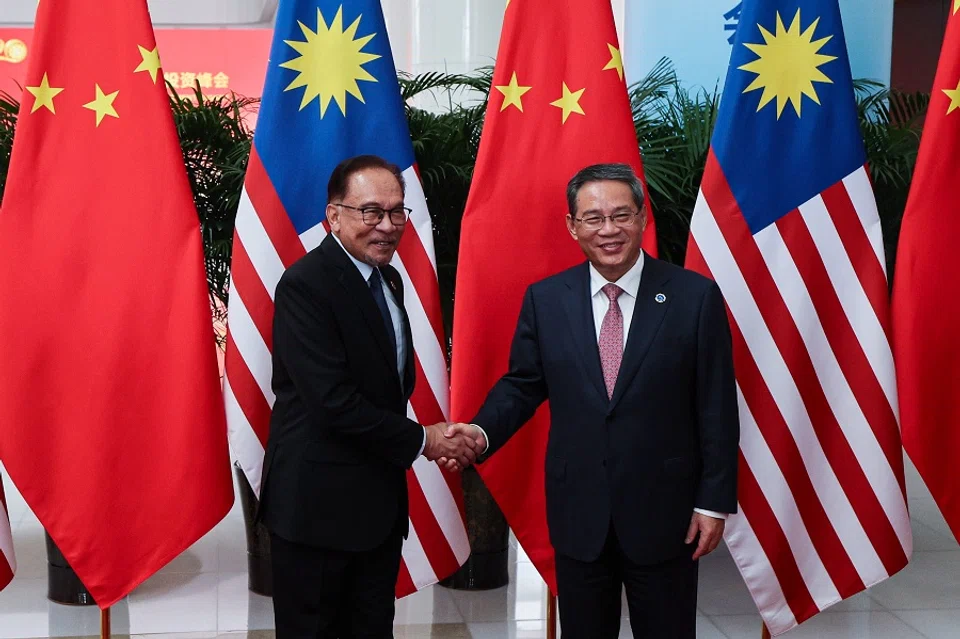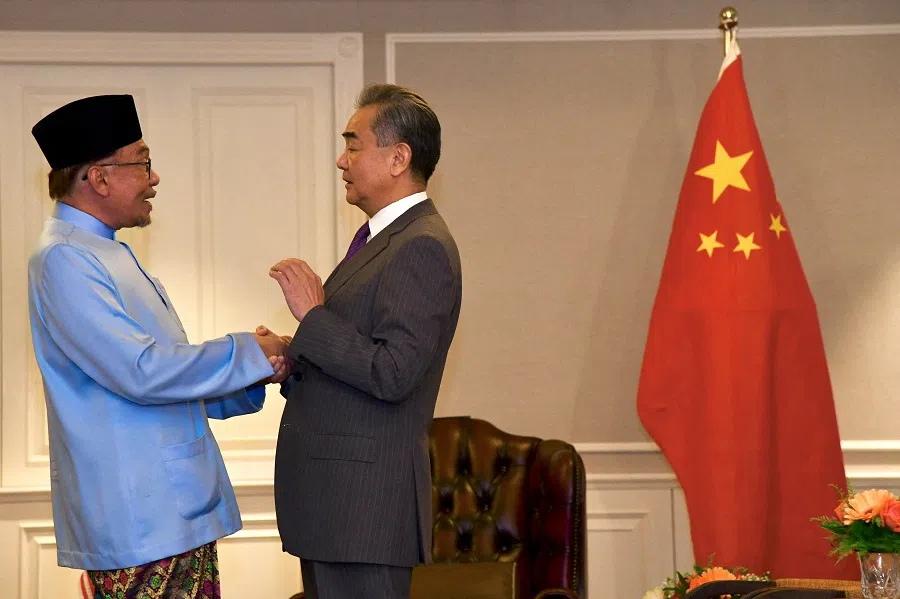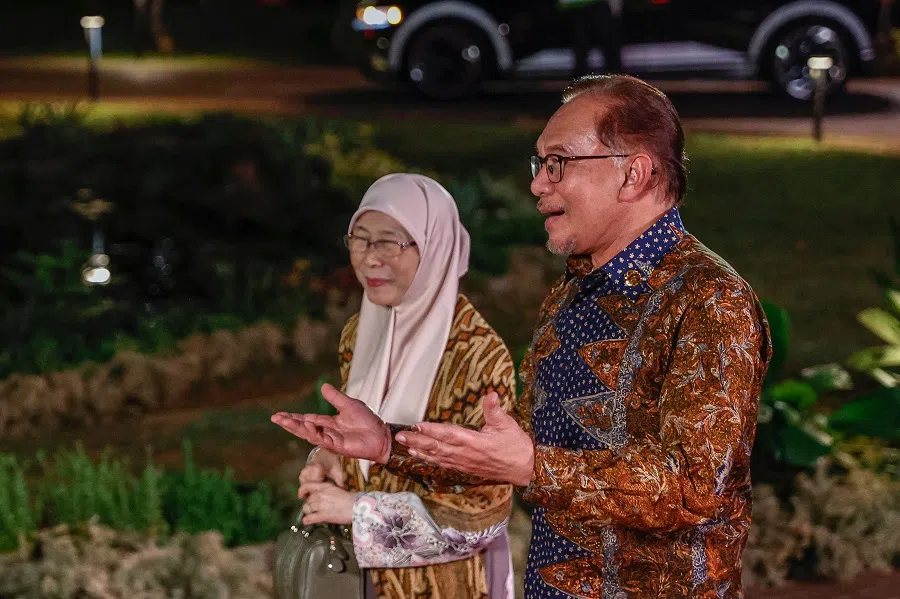Anwar's China trips: Is Malaysia putting China before the West?
Malaysia Prime Minister Anwar Ibrahim made his second visit to China in September to attend the 20th China-ASEAN Expo just months after his last visit in March. While Anwar has repeatedly insisted that Malaysia's relations with the US and other Western countries remain strong, his active engagement of China draws questions over Malaysia's emphasis in foreign policy.

In late August, Malaysia drew attention as the first ASEAN country (and the second globally) to officially rebuke China when a new standard edition of the map of China was issued by China's Ministry of Natural Resources. The new map contains nothing particularly new, including the long-held but controversial "dashed-line" claims in the South China Sea, but Malaysia was more determined to register its rejection this time.
However, Malaysia also stressed that the issue must be "handled peacefully and rationally through dialogue" based on international law. Malaysia's protest, anyway, is not an indication of any fundamental shift in Malaysia's foreign policy stance on either China or the South China Sea issue. Just a few weeks later, Malaysian Prime Minister Anwar Ibrahim made his short and second visit to China on 17 September.
Keeping up the momentum
The second visit to China was to attend the 20th China-ASEAN Expo (CAEXPO), as well as the China-ASEAN Business and Investment Summit (CABIS) in Nanning, Guangxi. Anwar made the most of his short, 14-hour stay in the city, meeting with Chinese Premier Li Qiang, and also held sessions with Chinese companies China Communications Construction Company (CCCC) and Huawei. Rafizi Ramli, the economy minister and one of Anwar's closest political allies, couched the visit as courting for more investment from China.
Anwar has repeatedly made known that he prioritises economic diplomacy objectives, and this is where China will definitely come in handy as an economic superpower. Economic deliverables of the visit included securing the deal to double palm oil exports to China to half a million tonnes annually.
Anwar has placed strong importance on interactions at the face-to-face level with the top Chinese leadership...
Anwar was invited to undertake the second visit to China by Chinese Foreign Minister Wang Yi during the latter's short visit to Malaysia in early August. But this second visit was also likely based on Anwar's consideration that he could take this opportunity to have more face-to-face interactions with top Chinese leaders (in this case, Premier Li Qiang).

After the official visit to China in late March by Anwar this year, a second visit within the year was almost certainly in the pipeline, especially with Beijing hosting the Third Belt and Road Forum in October. But the Belt and Road Forum likely will have a lot more foreign leaders visiting Beijing at the same time. For Anwar, between attending CAEXPO and attending the Belt and Road Forum, certainly, the former occasion would allow a lot more face-to-face time with top Chinese leaders.
A third visit to China within a year will probably be seen as too many, so Anwar chose CAEXPO rather than the Third Belt and Road Forum. For the latter, Anwar is likely to dispatch either a deputy prime minister or an important cabinet minister to attend.
Anwar has placed strong importance on interactions at the face-to-face level with the top Chinese leadership, seeing these direct interactions as opportunities to cultivate relationships, conduct straightforward discussions on critical issues, and get personal commitments and assurances from the top Chinese leadership. As Anwar remarked during his conversation session with the Council on Foreign Relations (during his trip to New York for the United Nations General Assembly), "With Premier Li Qiang, it's been three times since I took over office as prime minister. I mean, and that means - a lot of very serious, candid, frank discussion sessions. And that has helped immensely."
More of such opportunities for direct engagements will also arise next year, as Anwar has extended an invitation to both President Xi Jinping and Premier Li Qiang to visit Malaysia in 2024 - the year that celebrates the 50th anniversary of diplomatic ties.
Affirming 'community with a shared future'
Anwar's meeting with Li Qiang in Nanning touched upon several issues, mostly about the economy, but also the agreement to have open and continuous communication on the South China Sea. Anwar also appeared to reaffirm the concept of "community with a shared future" between Malaysia and China. Malaysia is the fifth country in Southeast Asia (after Laos, Cambodia, Myanmar and Thailand) to have endorsed the concept, indicating some success that China has in getting this grand narrative accepted within the Southeast Asian region.

Malaysia under Anwar is also quite exceptional in the sense that Anwar has a strong reputation for being a "champion of democracy" and having circles of longstanding friendship in Washington, which in the eyes of the Washington establishment, should make him predisposed to be sceptical towards the "community with a shared future" that comes out from the most powerful authoritarian country and topmost competitor of the US.
However, Anwar certainly does not see this Chinese concept as necessarily contradictory or inconsistent with the values that Malaysia professes. The concept, as Anwar sees it, "stresses principles of openness, civility, inclusiveness and mutual respect in dealing with bilateral, regional and international cooperation" and "these values are consistent with those of Malaysia Madani".
Nonetheless, it is also quite natural that perceptions of Anwar having accorded more importance to China are being shaped, especially in Western capitals...
Need to expand outreach
These recent developments indicate that Malaysia-China relations are in rather good shape now. However, Anwar must also increase efforts to expand his diplomatic engagements in the coming months. Anwar has repeatedly insisted that Malaysia's relations with the US and other Western countries remain strong; the recent increased engagements with China should not be seen as being pursued at the expense of Malaysia's relations with other countries.
Nonetheless, it is also quite natural that perceptions of Anwar having accorded more importance to China are being shaped, especially in Western capitals, as comparisons of Anwar's interactions with top Western leadership and with Chinese leaders are made. Indeed, Anwar has travelled mostly to neighbouring ASEAN countries, a few Middle Eastern countries, and China, while the recent visit to New York did not include any notable sessions with US counterparts. In the coming months, Anwar should consider reaching out to several core countries within the region, such as South Korea, Australia, Japan and India.





